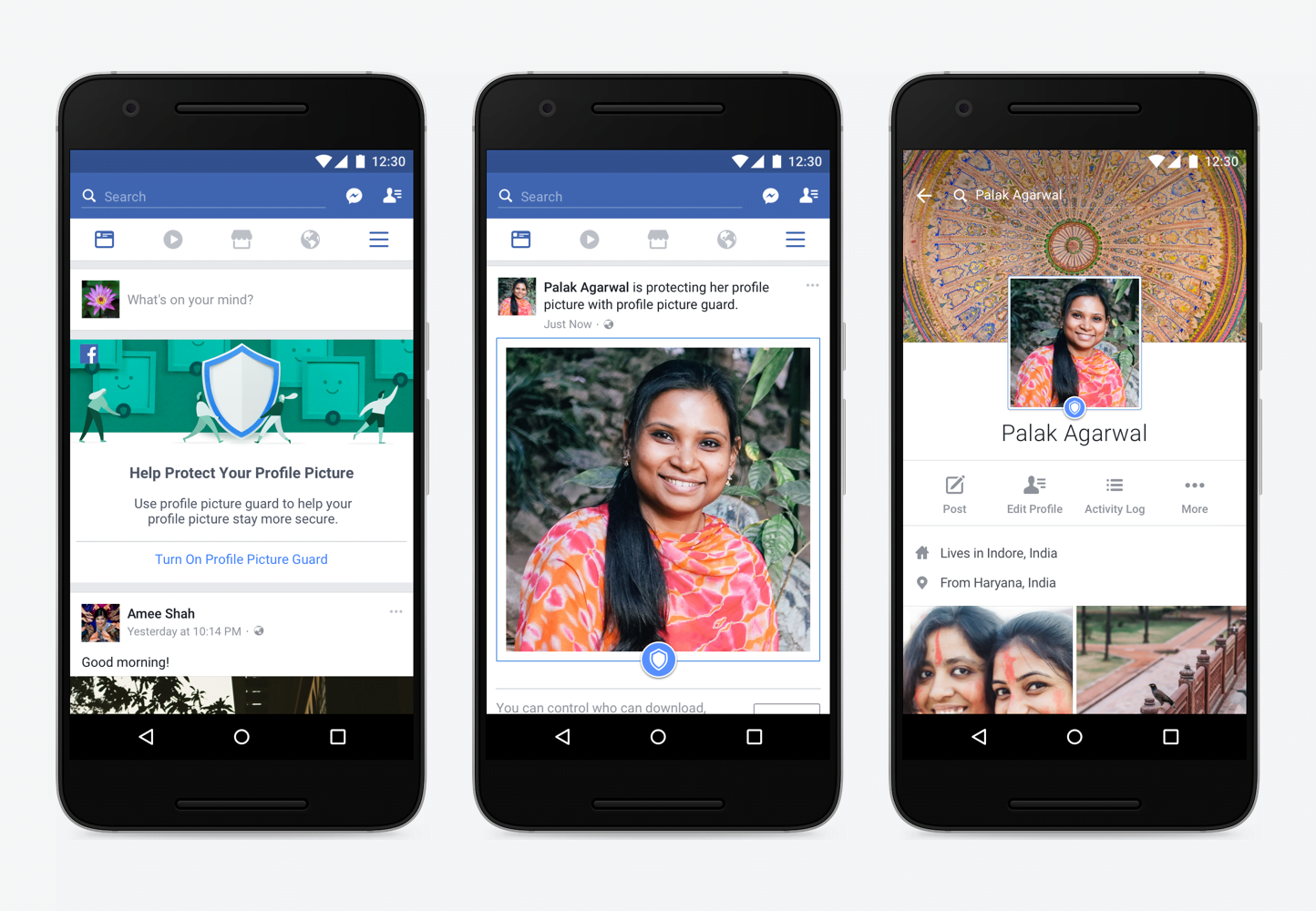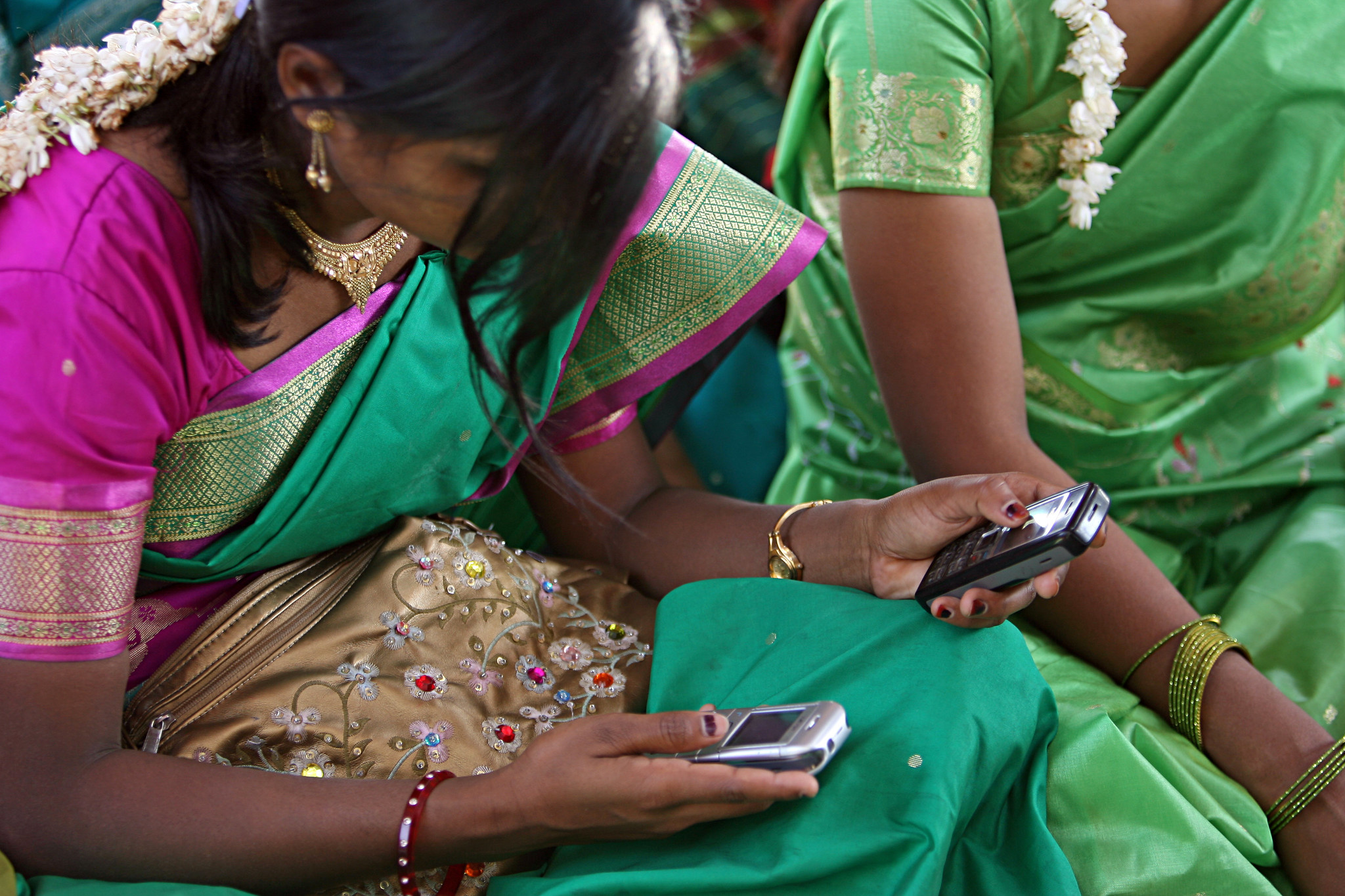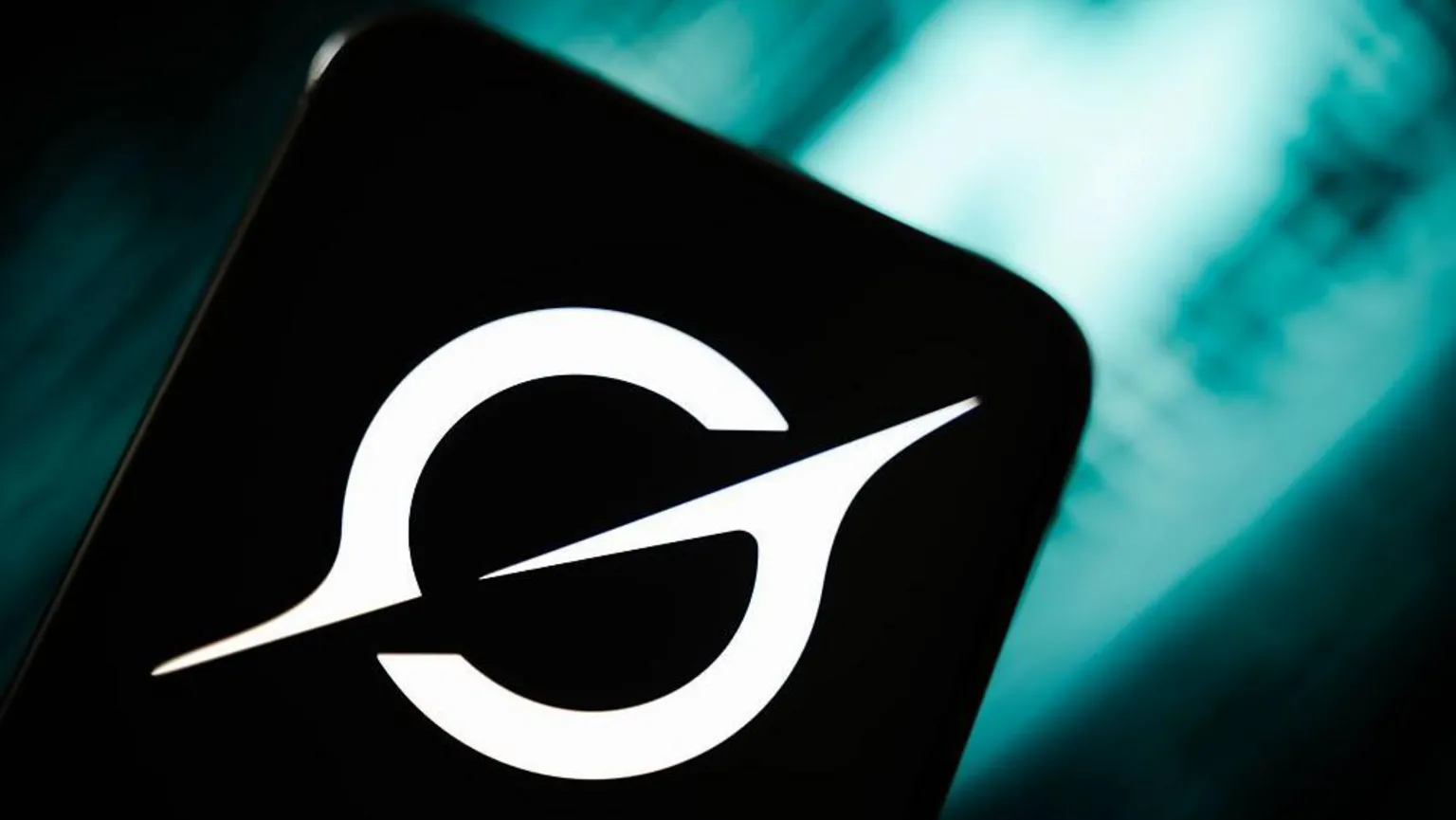On June 21, Facebook announced new safety features against cyber abuse for Indian users. According to their research most Indian women don’t put their profile pictures for fear of them being misused for blackmailing, sexual harassment or fake profiles. To tackle this issue, Facebook in partnership with Centre for Social Research, Learning Links Foundation, Breakthrough and Youth Ki Awaaz launched two new safety features for profile pictures.
The first feature aims at protecting the photos of users through a profile picture guard. With this guard, the other users will know that the person wants their picture to be protected, and won’t be able to be download, send as a message or share on Facebook. Android users will also not be able to take a screenshot of the photo. Second feature is the provision of profile picture designs as the research also shows that people are 75% less likely to download a picture with designs. The designs have been inspired by Indian textile designs like bandhani and kantha, to cater to Facebook’s Indian women users. If the picture with this design is reported as being misused, the design acts as a tool to help determine whether it should be removed or not.
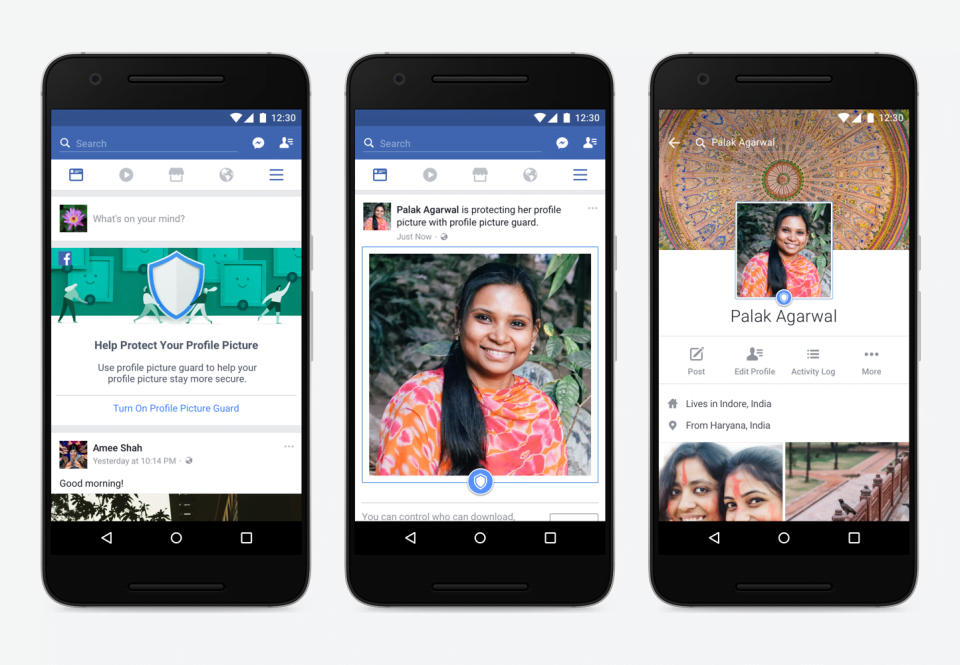
[Source: newsroom.fb.com]
An article by Mashable claims that while these measures are a step towards safety from cyber abuse, they are still limited as there are other ways of misusing someone’s photo or other sensitive information. It suggested that instead the profile photos, like other photos, should also be limited to friends or friends of friends option. However, I would like to argue that even this does not guarantee 100% safety as even those ‘friends’ and ‘friends of friends’ can be perpetrators in cyber abuse.
Moreover, this measure only includes profile pictures, while cover photos and featured photos can also be subject to misuse. As The Ladies Finger piece also suggests there is a high chance, in an environment where victim blaming is commonplace, the absence of a photo guard will be used as a defense by harassers for misusing a photo. Other than victim blaming cyber abuse is also facilitated when harassment is left unchecked and because of the anonymity culprits get away with it, of which Facebook is also guilty.
Also Read: If Facebook Ignores Online Harassment, It Promotes It
Facebook faced increased criticism because of its real-name policy. Under the policy people are only allowed to use ‘authentic names’ that are known to their ‘friends and family’, which led to a large number of profiles being wrongly reported as fake, as also activists being targeted by flagging their profiles. In 2015, Facebook proposed a relaxation in the policy by introducing two features that were tried out in the USA. The first feature required the person reporting a fake profile to provide more information as to their reason for it, to prevent people from being falsely reported.
The second feature allowed people to change their name under special circumstances, giving additional information as evidence. This feature was extremely problematic for people like whistleblowers, queer or trans* people, victims of sexual harassment or others, who wanted to protect their identity and on the contrary were now being asked to give sensitive information on social media, where there is a danger of it being leaked. Moreover, as of June 2017, there is no evidence that this changes has been officially included in the Facebook policies.
This article by EFF adds that the real-name policy itself is flawed as Facebook’s stress on authenticity of the names puts people in a vulnerable position as many hide (or are forced to hide) their true or offline identities for various reasons, like not being accepted in society or working against powerful people or organizations and therefore requiring a pseudonym.

Phan Thị Kim Phúc, second from the left. [Source: www.wikipedia.com]
Also read: It’s 2016 And Facebook Is Still Terrified Of Women’s Nipples
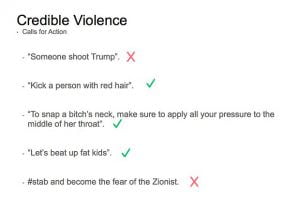
[Source: www.theguardian.com]
The policies adopted by such influential social media platforms as Facebook have a major impact on society. The company’s liberal attitude towards harassers and trolls boosts their confidence, and facilitates a patriarchal and misogynistic culture. It also silences the voices of the already targeted groups, for whom social media also provides a way of freely expressing themselves. Thus, while these measures initiated by Facebook are appreciated, they are by no means enough.
Featured Image Credit: loopnewsbarbados.com
About the author(s)
Himanshi is pursuing Masters in History and hopes to be a historian one day. She loves to read books, and even more to collect them. In her free time, she likes to explore historical haunts. Also, she is a foodie and spaghetti makes her heart race.
